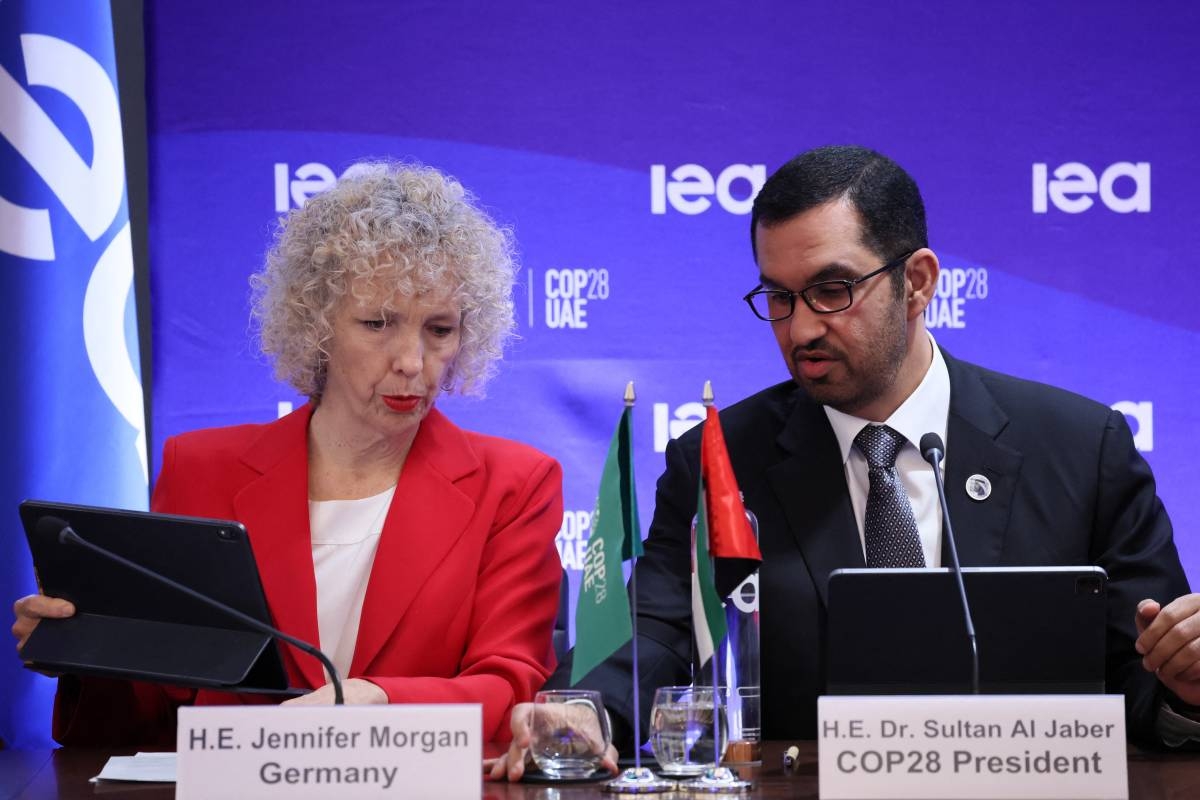PARIS: In order to accelerate the green transition and effectively combat global warming, the world requires “trillions” of dollars, according to Sultan Al Jaber, the head of last year’s COP28 climate talks. He emphasized that without clear action, political momentum can quickly evaporate.
Jaber commended the progress made at the UN negotiations in Dubai, where countries agreed to triple global renewable energy capacity and transition away from polluting fossil fuels. However, he highlighted the lack of important details, particularly regarding funding, which places the responsibility on this year’s COP29 meeting in Azerbaijan.
As global heat records continue to be shattered, the need for funding agreed upon this year becomes even more crucial. Experts assert that such funding will play a significant role in encouraging governments to strengthen their decarbonization targets.
Jaber, who also serves as the chief of the UAE’s national oil company Adnoc, emphasized that finance is the key enabler of positive change at the necessary speed and scale. He emphasized the need for finance at every level, going beyond traditional scales.
This year, countries are expected to establish a new target for the annual support that wealthy nations will provide to poorer nations for their energy transitions and climate adaptation from 2025 onwards. The failure of wealthy nations to meet their previous goal of $100 billion per year by 2020 has eroded trust, with indications that the target was likely only reached in 2022.
The available funds fall significantly short of the actual needs. The UN-backed climate finance expert group estimates that emerging economies, excluding China, will need to spend approximately $2.4 trillion per year by the end of the decade.
Jaber emphasized, “The world must now raise the bar to address the challenge we face. We need to start thinking in terms of trillions, not billions.”
Recognizing the magnitude of support required, there is a growing focus on expanding sources of funding. Pressure is mounting on the World Bank and International Monetary Fund to implement comprehensive reforms that align their lending practices with the goal of the Paris Agreement to limit global warming to 1.5 degrees Celsius above pre-industrial levels.
Other initiatives under discussion include the introduction of new taxes, particularly on polluting industries, as well as redirecting fossil fuel subsidies towards green development.
Jaber cautioned that there is a risk of political momentum dissipating and fading away between COP meetings. It is crucial to maintain a sense of urgency and ensure that action is taken promptly to address the pressing challenges of global warming.
In conclusion, the urgent need for trillions of dollars to drive the green transition and combat global warming cannot be overstated. Adequate funding, coupled with comprehensive reforms and innovative approaches, is essential to accelerate the transition towards a sustainable future and mitigate the impacts of climate change. The world must unite and prioritize this critical endeavor, recognizing that the time for action is now.







